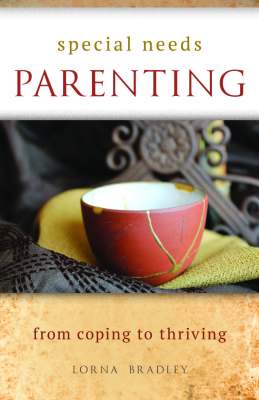Recently I published the first in what I hope to be a series of books offering support to special needs parents. Today I am sharing an excerpt from chapter six. I hope it is a blessing to you.
But Ruth replied, “Don’t ask me to leave you and turn back. Wherever you go, I will go; wherever you live, I will live. Your people will be my people, and your God will be my God. Ruth 1:16 NLT
Relationships are critically important to personal and family resilience. Maintaining healthy relationships within the family and developing friendships help create a network of support as well as emotional reserves for current and upcoming challenges. The need for relationships among special needs parents is a large part of my motivation for writing material for use by small groups. One of the greatest gifts parents who are overwhelmed can receive is the knowledge that they are not alone. The relationships that come through meeting others on the same journey provide meaningful connections and support.
Since healthy relationships are an important part of building resilience in special needs parents, where to begin?
- Set priorities. Which are the relationships you value most? Which are the relationships most in need of nurture? Spouse? Child? Friends? Set priorities to focus your attention there. A pastor I know shared that he and his wife make an intentional priority to set aside a few evenings each month to nurture relationships with other couples so that they have friendships.
- Understand the difference between acquaintances and friends. Social media announces our friend count and number of connections. Who can you really count on when needed? Who can hear your disappointments without judgment? Who is willing to work through challenges with you? Do you return the favor? Those are your real friends.
- Create space for the important relationships. In my household we have “family time” pretty much every weeknight. We read together or watch a show or share a meal. Studies show the simple act of eating together builds family resilience as it engages four relationship building blocks (loving action, time, communication, and healthy boundaries). My husband and I set a priority for a weekly date night. For my most valued friendships I try to keep regular contact and get together as often as possible.
- Pay attention to the give-and-take of relationships. Are you giving too much and in need of getting something more back? Are you taking too much yourself? Relationships should have a rhythm to them. At times we are in need and at times we are the ones offering support. Relationships that lack a balance of give and take become draining over time for the person who is always in the mode of giving.
- Enjoy being a parent. Yes, there are therapies to do, medications to administer, schedules to watch, behaviors to observe and modify. Just remember you are a parent and not a caseworker even though it sure can feel that way at times.
- Set healthy boundaries between you and your child. I often experience among special needs parents a sense of a blurring of that boundary. I have heard the pronoun “we” countless times. “We got a low grade on the math test.” “We had a rough day at school.” “We forgot our medication.” “We had five seizures last night.”
Healthy relationships are an important part of the journey with special needs. In challenging times it is especially important to have a core of support. I opened with a well-known verse from the story of Ruth. Naomi had lost her husband and her two sons, who were also married. In Naomi’s culture, a woman’s status and security resided in her connections with the men in her family. Her worth was tied to fertility. All three of the widows were in a precarious situation, but especially so for Naomi. Unlike Naomi, her daughters-in-law were young and could hold onto hope of another marriage. Yet, in the midst of the darkest of times Naomi had a core relationship with her daughter-in-law Ruth that provided support. The health of her relationship with her daughter-in-law revealed itself in her Ruth’s fierce loyalty. Their mutual support sustained them both through the hardest of times. It may seem difficult to set a high priority to build healthy relationships with so many other pressing needs. However, healthy relationships are a key tool to personal resilience for the journey ahead.
Special Needs Parenting: From Coping to Thriving is available at Huff Publishing.

As usual Lorna, I love your good and practical advice. Thanks for adding this link to the Tuesday special needs link up at DifferentDream.com.